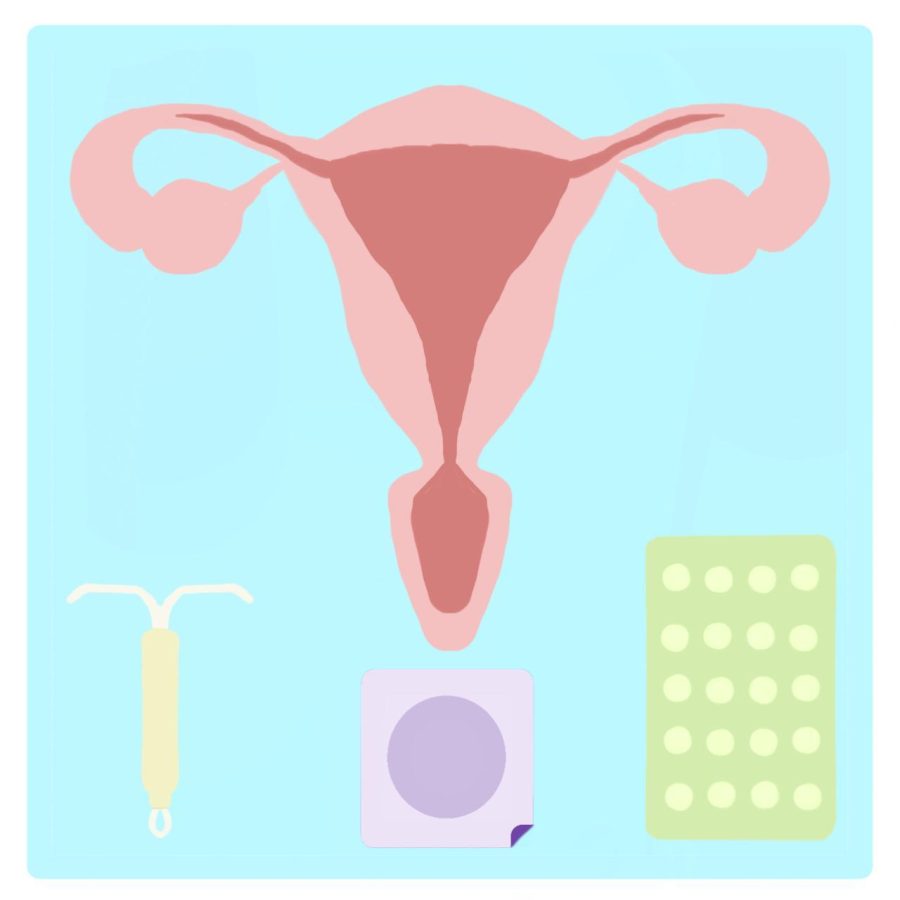Opinion | Be honest to students about abortion care options
September 15, 2022
The overturn of Roe v. Wade has put a focus on abortion care in the Pittsburgh area, specifically on the limited number of clinics that now serve patients from surrounding states. As we return to campus, it’s important for students to know which clinics actually perform abortions — and which ones just want us to think they do.
Here is your guide to seeking an abortion as a college student and identifying crisis pregnancy centers.
Different types of abortions
Let’s begin by talking about different types of abortions. Abortion is one of the safest medical procedures in the United States, and nearly one million abortions were performed in 2020. Medication abortions and surgical abortions are two reliable and common ways to end a pregnancy.
A medication abortion, also known as the “abortion pill,” is a combination of two medicines. The first is mifepristone, which blocks the hormone needed for a pregnancy to progress. The second is misoprostol, which empties the uterus and is taken at home up to 48 hours later. Patients may experience cramping and bleeding. The abortion pill is typically offered up to 10 to 11 weeks after someone’s last period and is very effective, especially the sooner someone takes it.
A surgical abortion is a procedure performed in a medical clinic. First trimester surgical abortions usually take 5 to 10 minutes, and second trimester surgical abortions take between 10 to 20 minutes. Staff will offer different types of pain management for the procedure and take patients to rest in a recovery room for a while afterward. Patients may have bleeding, cramping or spotting when they get home.
Abortion clinics in the Pittsburgh area
There are only two abortion clinics that serve all of Western Pennsylvania, and now they are accepting more patients from neighboring states. They are both in Pittsburgh — Planned Parenthood of Western Pennsylvania in Downtown, and Allegheny Reproductive Health Center in East Liberty.
Planned Parenthood of Western Pennsylvania
- Phone Number: (412) 434-8971
- Abortion pill offered up to 10 weeks
- Surgical abortion offered up to 18 weeks
According to their website, the abortion pill costs $435, and costs for surgical abortions vary from $435 to $955, depending on the number of weeks of the pregnancy and the type of sedation used. For financial assistance, call 412-562-1900. In addition to abortion care, they offer a range of routine gynecological services, including breast exams, pap smears, cancer screenings and STD tests. They can help with contraception prescriptions and procedures such as birth control pills, patches, rings or shots, IUDs and arm implants. They also offer hormone therapy.
Allegheny Reproductive Health Center
- Phone Number: (412) 661-8811
- Abortion pill offered up to 11 weeks
- Surgical abortion offered up to 23 weeks, 6 days
ARHC asks that people call their clinic for pricing options. They partner with Western Pennsylvania Fund For Choice to keep abortion as affordable as possible. In addition to performing abortions, ARHC offers specialized gynecological care targeting problems such as irregular menstrual cycles or pain during sex. They also offer contraception prescriptions and procedures, STD services, hormone therapy and gender-affirming surgeries.
The Pennsylvania Abortion Control Act
When considering and planning for an abortion, there is a law that people need to be aware of. In 1982, the Pennsylvania state legislature passed the Abortion Control Act, which mandates that patients receive counseling and undergo a 24-hour waiting period before the procedure. This is meant to discourage people from getting abortions. PPWP and ARHC fulfill this requirement through conference calls or Zooms with their doctors, or meetings in the clinic.
There are only two clinics?
You may be thinking — there are only two clinics that offer abortion services in Pittsburgh? Yes. While there are many other pregnancy resource centers in the City, they do not provide abortion care, only counseling. I think if you are seeking an abortion and don’t want to hear other perspectives, you should go to Planned Parenthood or Allegheny Reproductive Health.
But there are pregnancy resource centers close to campus. One is the Women’s Choice Network, which has a location on Fifth Avenue, has tabled at Pitt’s Healthy U Fair, and even advertised in The Pitt News. One ad in February showed a positive pregnancy test and the text “Not the Valentine you wanted?”
Despite the ads targeting young people in crisis, when I spoke to Amy Scheuring, the executive director of Women’s Choice Network, she said “Mainly, when we’re talking with students from campus, it’s for STD testing and treatment … We don’t provide abortion. However, we provide students with a lot of health care that is free and very convenient.” Women’s Choice Network provides pregnancy tests, STD testing and ultrasounds.
What are crisis pregnancy centers?
Other pregnancy resource centers besides Planned Parenthood and ARHC in Pittsburgh, such as the Women’s Choice Network and the East Liberty Women’s Care Center, are classified as crisis pregnancy centers, according to the CPC Map. The CPC map is a project that provides information about CPCs in the U.S. and is led by Drs. Andrea Swartzendruber and Danielle Lambert, both of the Epidemiology and Biostatistics Department in the College of Public Health at the University of Georgia.
According to the AMA Journal of Ethics, crisis pregnancy centers are “legal but unethical” and give “the impression that they are clinical centers.”
Some CPCs advertise abortion pill reversal. Abortion pill reversal is a treatment considered by the American College of Obstetricians and Gynecologists to be “unethical” and “not based on science.” CPCs argue that by administering the hormone that mifepristone blocks, one can undo the effects of the abortion pill’s first dose, although this is unproven.
In Pennsylvania, CPCs outnumber abortion clinics nine to one. A CPC network in Pennsylvania called “Real Alternatives” receives both state and federal funding. An estimated $60 million in federal abstinence and marriage-promotion funds have been directed to CPCs nationwide.
In Pittsburgh, the East Liberty Women’s Care Center says its mission is to “serve and empower the pregnant population and families through life-changing education and support.” They say they “are committed to offering accurate information about abortion procedures and risks,” but that they don’t “offer, recommend or refer” abortions.
They moved into a building previously occupied by Allegheny Reproductive Health Center, which provided abortions, and curiously, they use a similar logo — a lotus flower. A husband and wife who are both “pro-life” pastors founded the center.
But it gets stranger. The couple also founded “Voices for the Unborn,” which has the same exact building address, phone number and hours as the Women’s Care Center. Their mission statement is a little different —“to defend the human life of the unborn by educating and empowering women and men with an alternative to preserve the sanctity of life.”
Most bizarre of all is a tab on their homepage labeled “client website” which takes you to — you guessed it — the East Liberty Women’s Care Center. But once you reach the center’s website, there is no mention of “Voices for the Unborn” — and, despite sharing an address, it’s not on the building’s sign. The East Liberty Women’s Care Center did not respond to multiple requests for comment.
This shows how far anti-abortion leaders are willing to go just to get people in the door. The scariest part about CPCs is that, because most are not licensed medical clinics and offer services for free, most don’t have to follow federal data privacy laws. This has become even more dangerous during the widespread criminalization of abortion and risks to data privacy.
I think that these centers should make it abundantly clear they are “pro-life” organizations, offering their perspectives to those who are unsure about getting an abortion. But CPCs function by making their advertising intentionally misleading, being vague about the actual services they provide and pushing anti-abortion agendas under the guise of supporting pregnant people.
I believe it is important that we stay vigilant in efforts to disclose centers that are not abortion friendly. We must ensure that our friends and classmates have the information they need to access safe and affordable abortions while avoiding efforts to dissuade them from getting them. If you want to support local abortion clinics, you can donate to WPA Fund for Choice and PPWP. To volunteer, email [email protected].
India studies politics and philosophy and listens to a lot of Joni Mitchell. You can write to her at [email protected].




